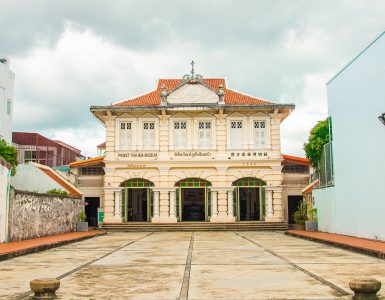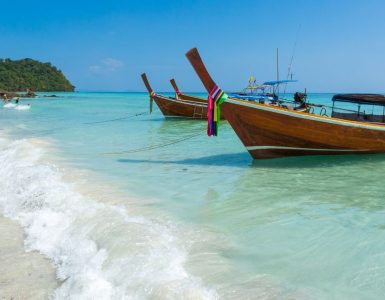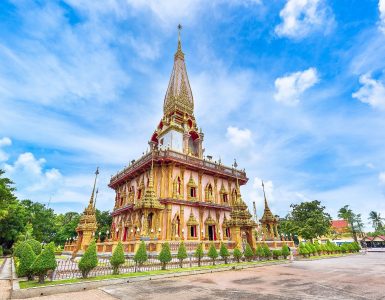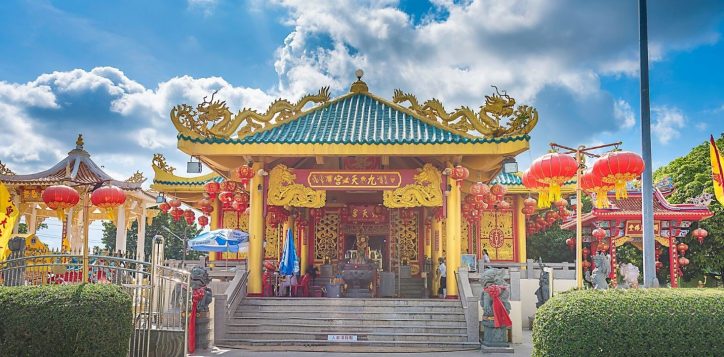Novotel Phuket City Phokeethra - Family & Business trip hotel - Chinese Shrines in Phuket
Chinese Shrines in Phuket
Chinese Shrines in Phuket
In addition to culture and cuisine, the Chinese immigrants that arrived in Phuket to take advantage of the tin mining boom also brought with them their religion and spiritual traditions. This influence can still be felt today in the many colourful Chinese shrines that dot the island.
Jui Tui Shrine
Located on Ranong Road in Phuket Town, the multi-hued Taoist Jui Tui Shrine is dedicated to the vegetarian deity Kiu Wong and plays a central role in the Vegetarian Festival. Built initially on Soi Romanee, it was moved to its current location after a fire destroyed it.
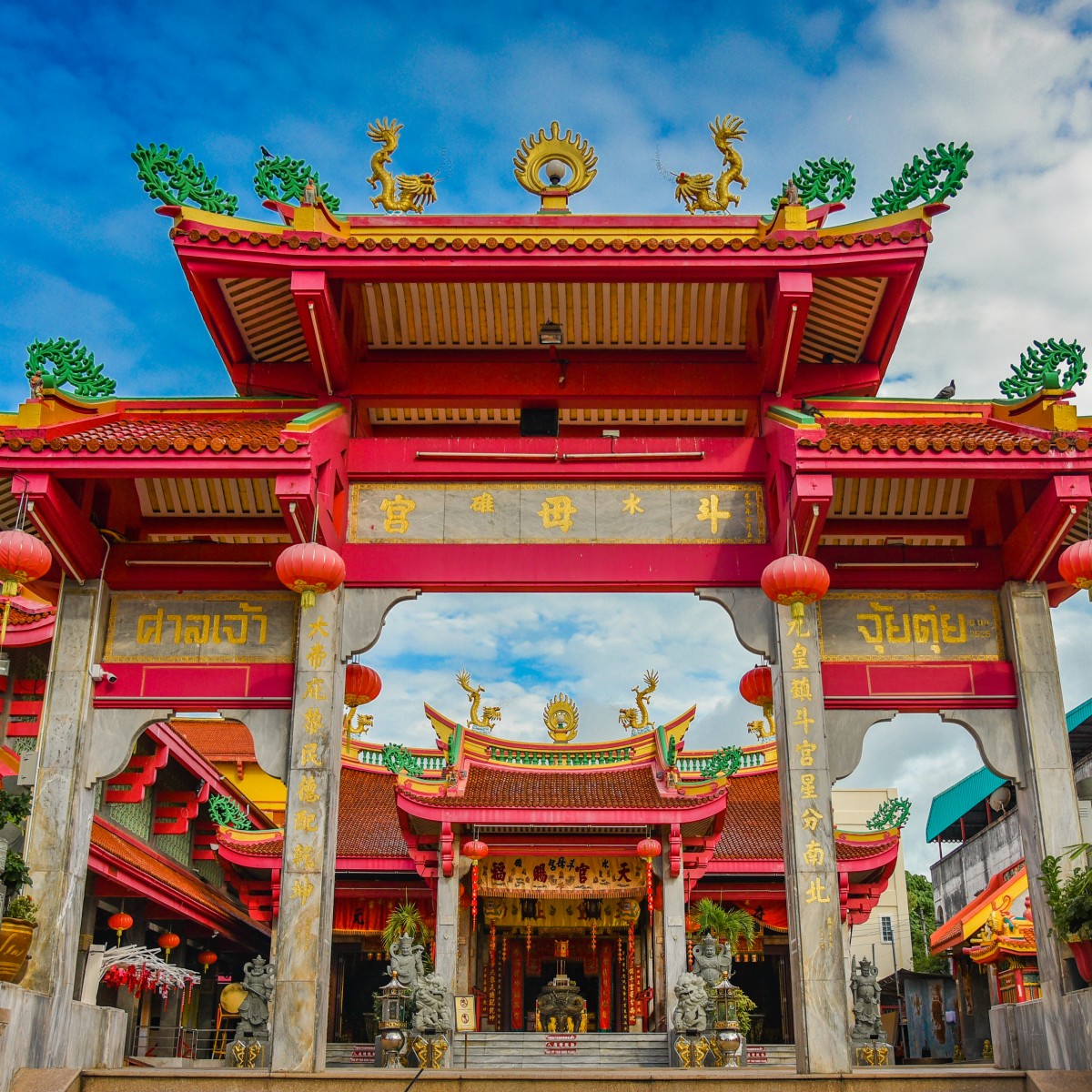 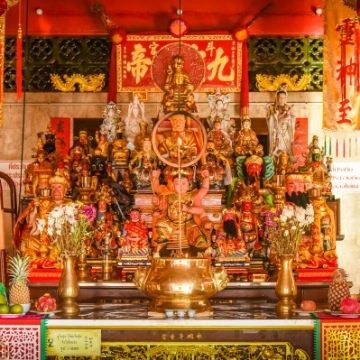 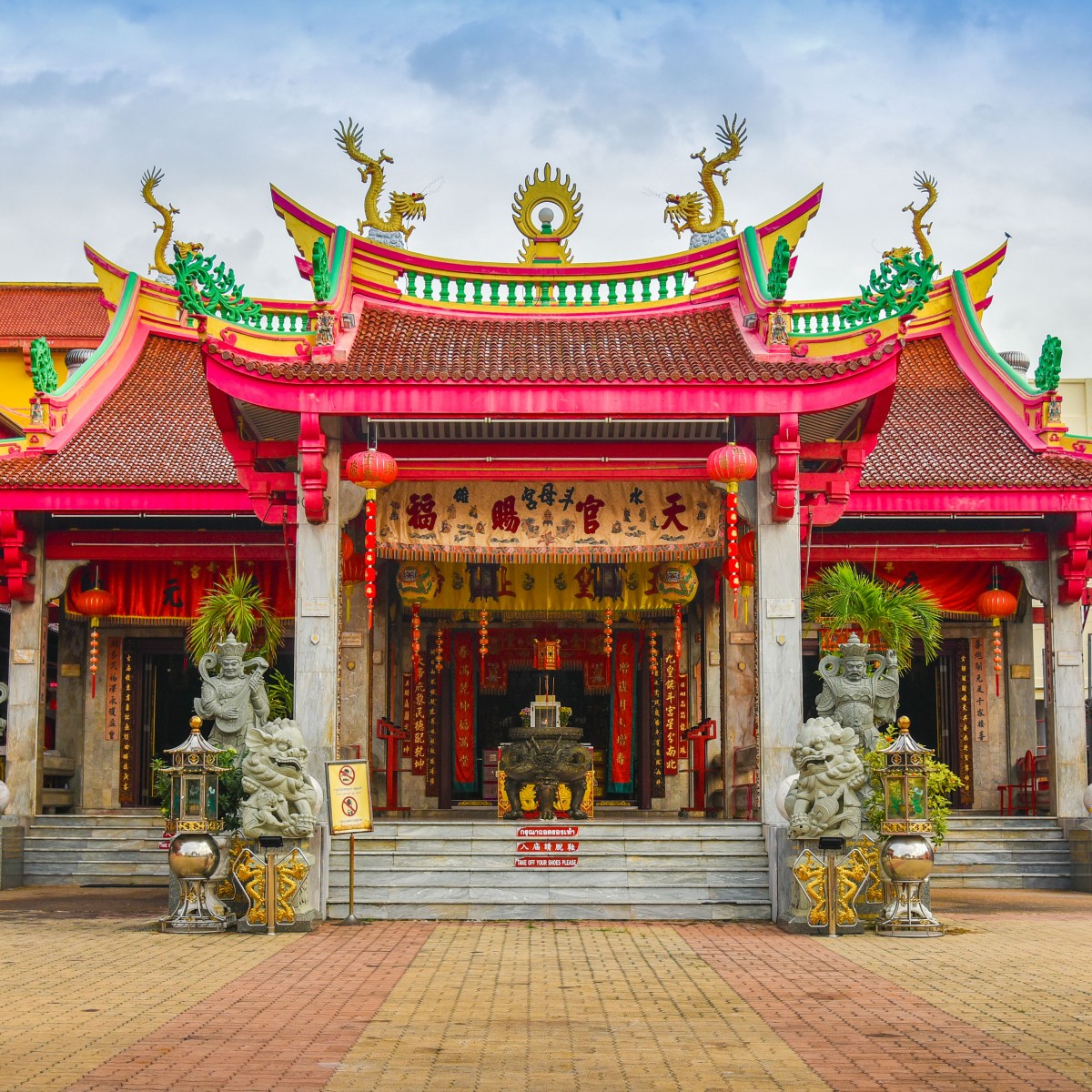 |
|---|
Bang Niew Shrine
Another shrine destroyed by fire not once but twice is the Bang Niew Shrine, founded in 1934. Alternatively known as Tao Bong Keng or Chai Teung, it houses deities thought to aid devotees in their careers.
Put Jaw Chinese Temple
The Put Jaw Chinese Temple, the oldest on the island, is dedicated to the Goddess of Mercy, Kuan Yin. Locals suffering from ill-health come to seek divine help, while parents come here to get names for their newborns.
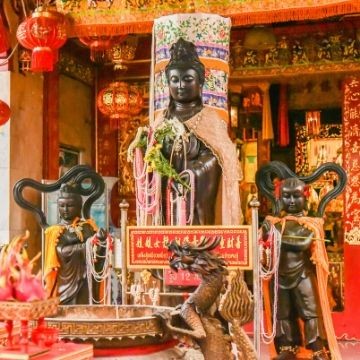 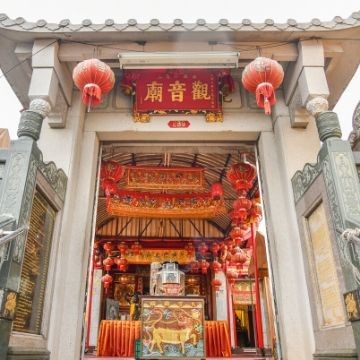 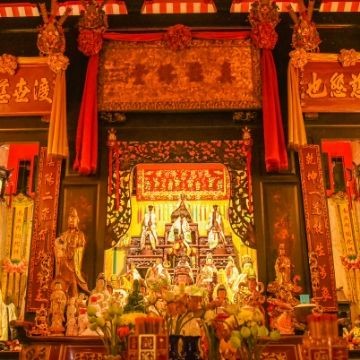 |
|---|
Sam San Shrine
Dedicated to Mazu, the Chinese goddess of the sea, the Sam San Shrine on Krabi road was built in 1853. It features intricate carvings and frequently holds ceremonies to bless new boats setting off on their maiden voyage.
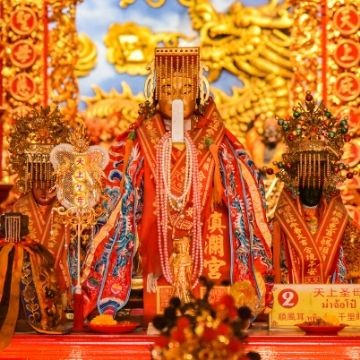 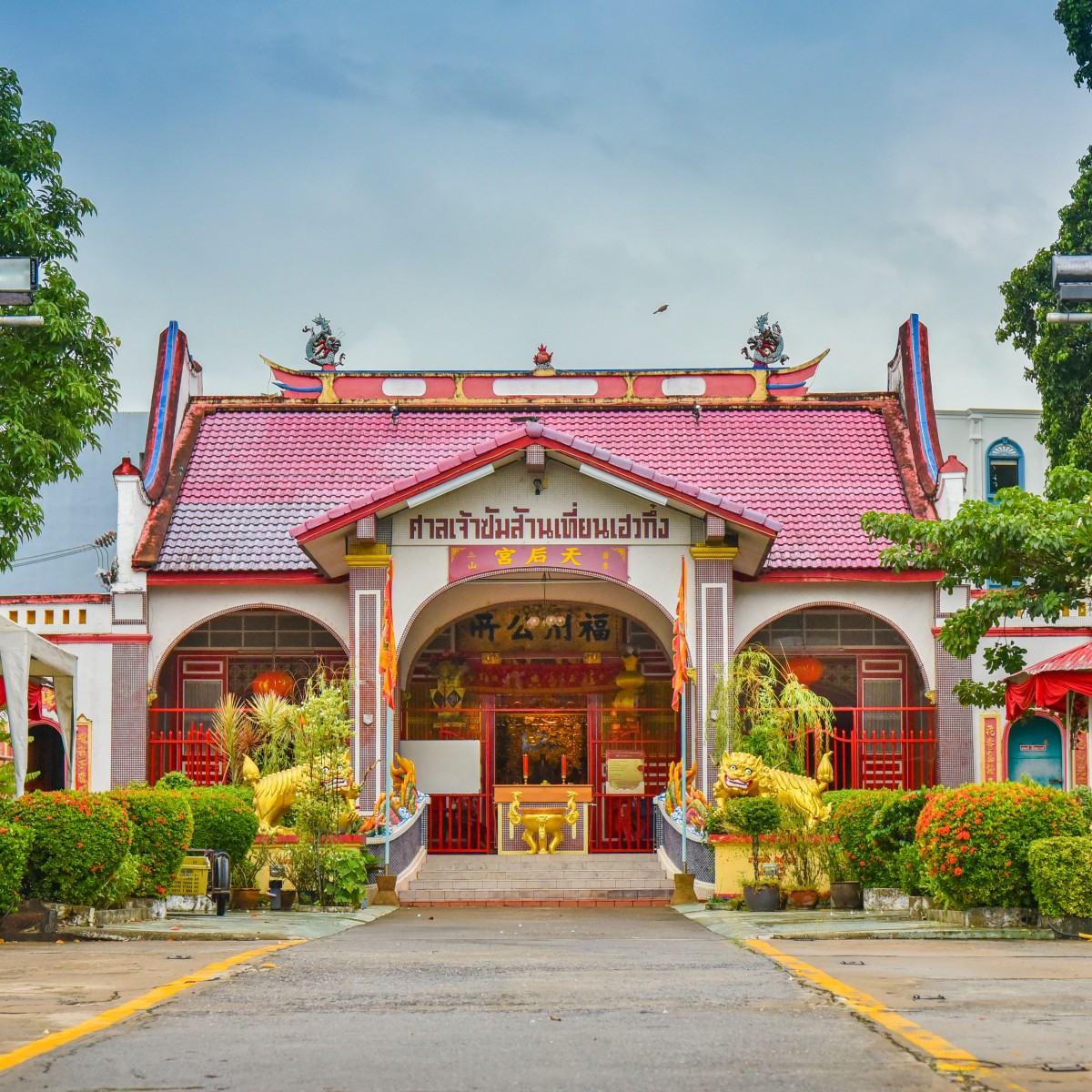 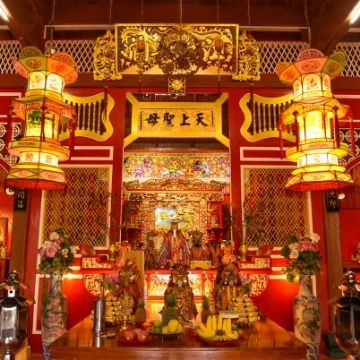 |
|---|
Shrine of the Serene Light
Another beautiful temple is the Shrine of the Serene Light. Erected by the descendants of a Hokkien Chinese family in 1891, it was once hidden down a narrow, nondescript alley. In recent years the entrance has been widened and adorned with brightly coloured trimmings.
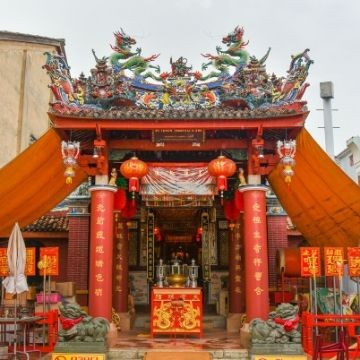 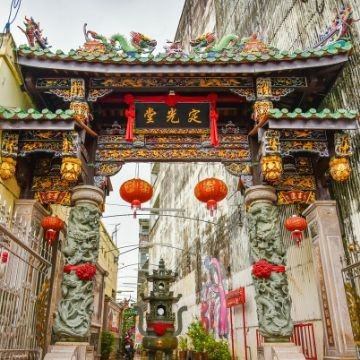 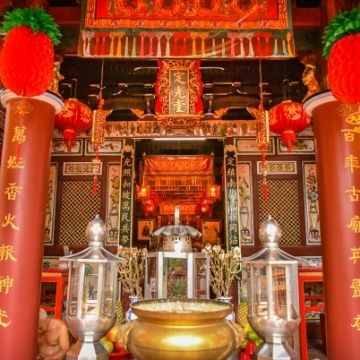 |
|---|


